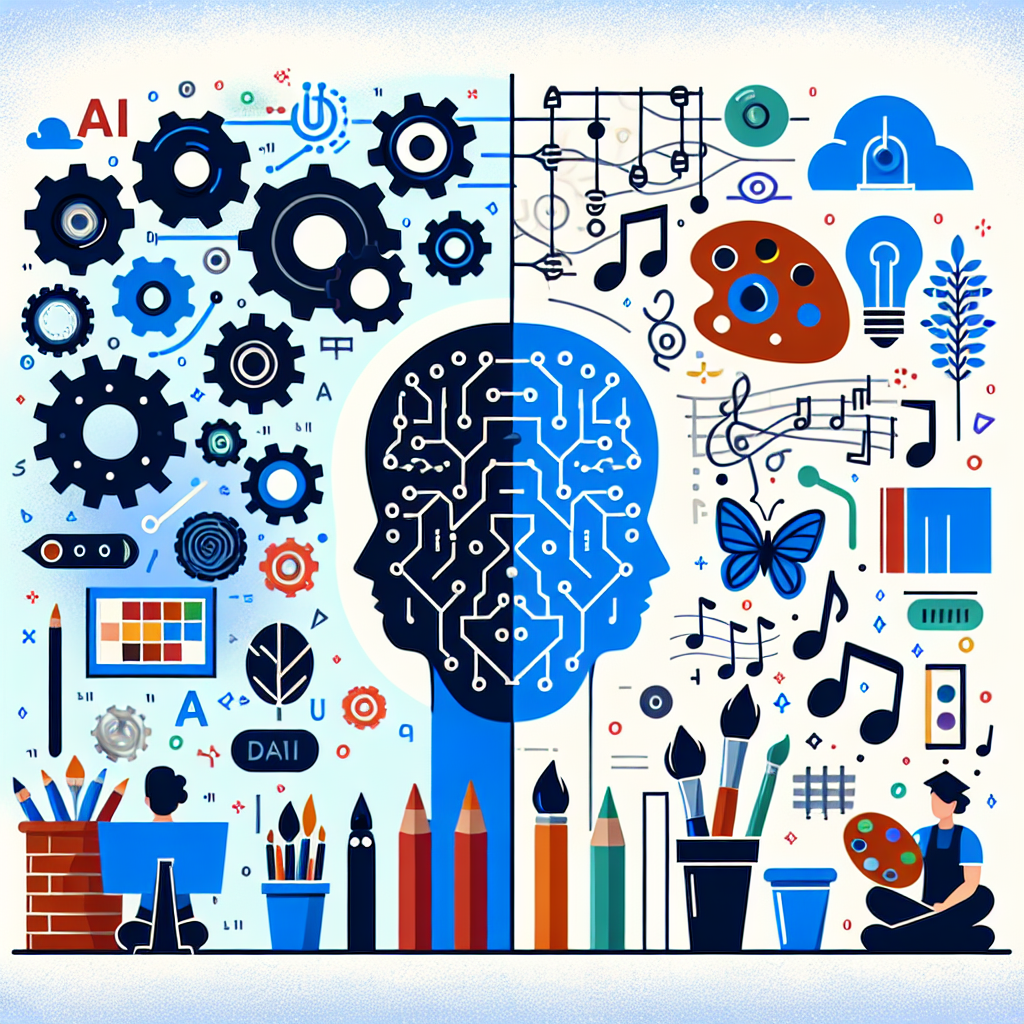Artificial Intelligence (AI) has been a rapidly evolving field that has the potential to revolutionize many aspects of our lives. One area where AI is increasingly making an impact is in the realm of creativity. While traditionally seen as a uniquely human trait, creativity is being explored in new ways through the intersection of AI and technology.
AI has the ability to analyze vast amounts of data and identify patterns and trends that humans may not be able to see. This can be particularly useful in creative fields such as music, art, design, and writing. AI can generate new ideas, designs, and even music compositions based on its analysis of existing works and trends.
One example of AI in creativity is the use of generative adversarial networks (GANs) to create new and unique pieces of art. GANs are a type of AI algorithm that consists of two neural networks, one that generates new content and another that evaluates the content for authenticity. By training these networks on large datasets of artwork, AI can create new pieces that mimic the style of famous artists or create entirely new styles altogether.
In the music industry, AI is being used to compose music, create new sounds, and even assist in the production process. Companies like Amper Music and AIVA are developing AI systems that can compose music in various genres and styles, providing a new tool for musicians and composers to explore and experiment with.
AI is also being used in design and architecture to generate new ideas and concepts. By analyzing existing designs and trends, AI can suggest new approaches and solutions that may not have been considered by human designers. This can lead to innovative and groundbreaking designs that push the boundaries of what is possible.
In the world of writing, AI is being used to generate content for news articles, marketing materials, and even creative writing. Companies like OpenAI have developed language models like GPT-3 that can generate coherent and engaging text based on a given prompt. While these systems are still in development and may not be able to replace human writers entirely, they can be a valuable tool for generating ideas and inspiration.
While AI has the potential to enhance creativity in many fields, there are also concerns about its impact on the creative process. Some fear that relying too heavily on AI for creative tasks may stifle innovation and lead to a homogenization of creative output. Others worry about the ethical implications of AI-generated content, such as issues of plagiarism and ownership.
Despite these concerns, the intersection of AI and creativity is a rich and exciting area of exploration. By combining the analytical power of AI with human creativity and intuition, we may be able to unlock new possibilities and push the boundaries of what is possible in the creative arts.
FAQs:
Q: Can AI truly be creative?
A: While AI can generate new ideas, designs, and compositions, it is still a machine learning algorithm that relies on existing data and patterns. AI lacks the emotional depth and intuition that humans bring to the creative process, so its creativity may be seen as more of a mimicry of human creativity rather than a truly original expression.
Q: Will AI replace human creativity?
A: While AI has the potential to enhance and augment human creativity, it is unlikely to completely replace it. Human creativity is a complex and multifaceted trait that involves emotions, intuition, and personal experience, which AI may not be able to replicate. Instead, AI can be seen as a tool to help humans explore new ideas and push the boundaries of their creativity.
Q: What are the ethical implications of AI in creativity?
A: There are several ethical concerns surrounding the use of AI in creativity, including issues of plagiarism, ownership, and the impact on the creative process. As AI systems become more advanced and capable of generating original content, questions arise about who owns the rights to AI-generated works and how they should be attributed. Additionally, there are concerns about the potential for AI to be used to manipulate or deceive audiences through fake content or misinformation.
Q: How can AI benefit creativity?
A: AI can benefit creativity in several ways, including by providing new tools and techniques for generating ideas, exploring new styles and genres, and pushing the boundaries of what is possible in the creative arts. By analyzing vast amounts of data and identifying patterns and trends, AI can help artists, designers, musicians, and writers discover new inspiration and approaches to their work.

